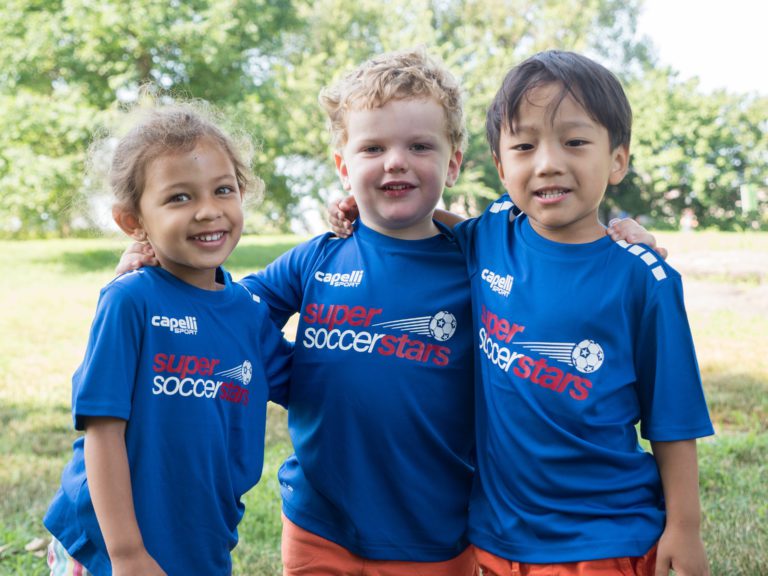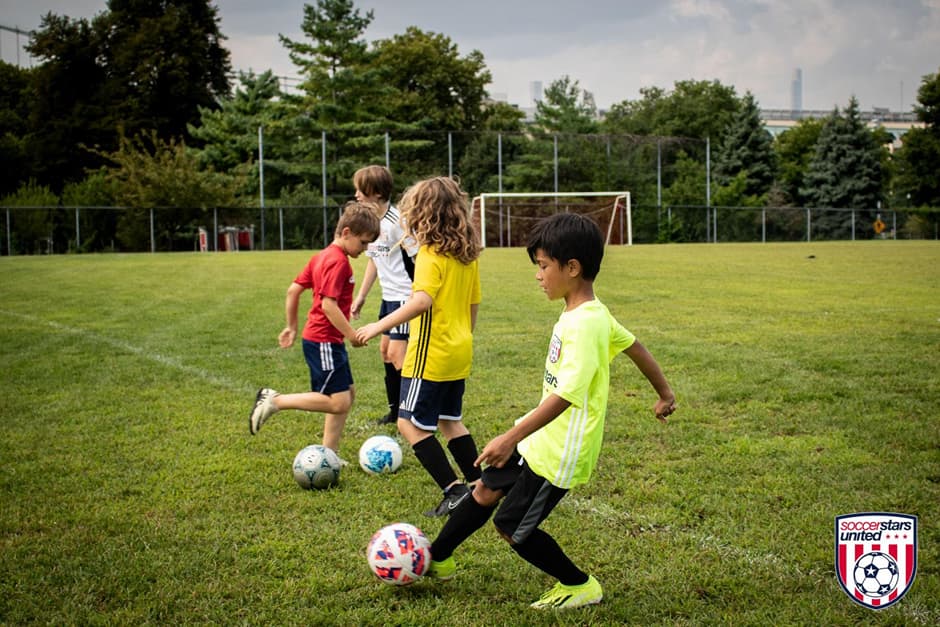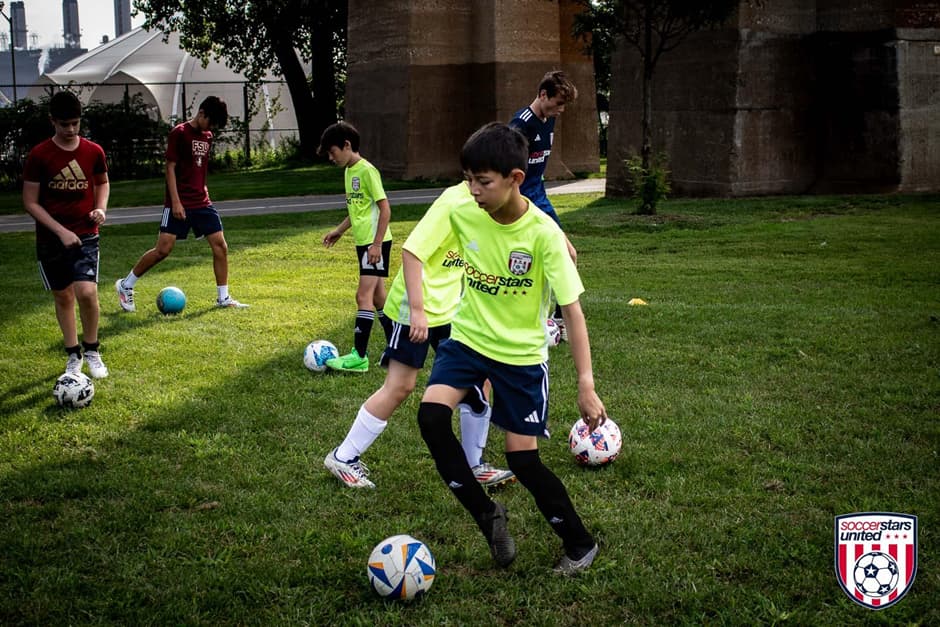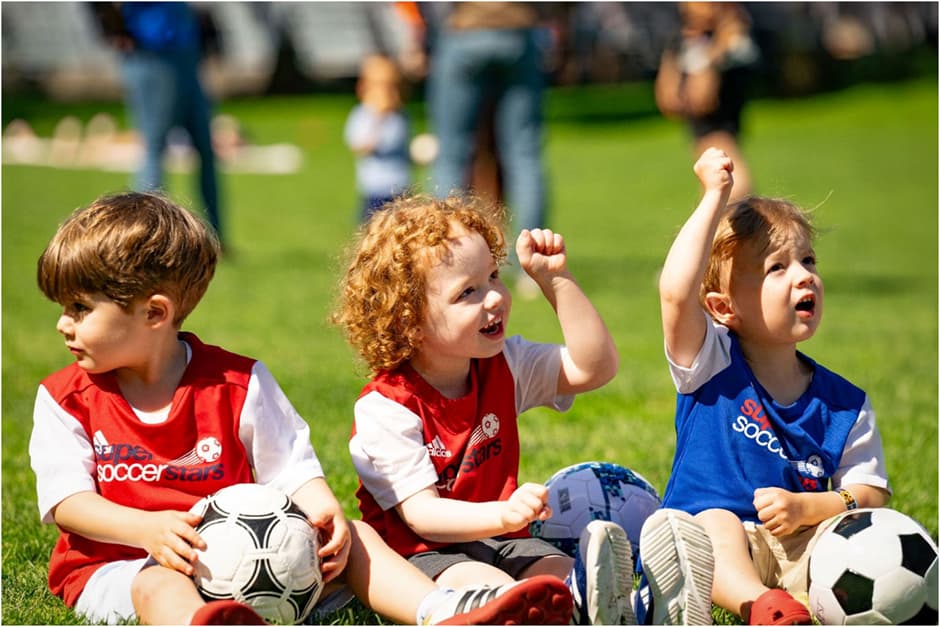
How Sports Can Affect Your Mental Health
There are numerous studies that support the claim that participating in frequent exercise, including sports, has a positive impact on physical and mental health. According to the Centers for Disease Control and Prevention (CDC), the health benefits of physical activity include:
- Improving your ability to do everyday activities;
- Reducing the risk of cardiovascular disease, type 2 diabetes, and some cancers;
- Strengthening bones and muscles;
- Weight management.
Playing a sport is a great way to improve both your physical and mental health, and making it a habit starting as a kid can help instill it as a value for life. This article will specifically discuss the mental impacts sports can have, and why learning to play sports early on can impact health and development at all ages.
Positive Effects of Sports on Mental Health
Signing up for a team sport like soccer, baseball, or even group multi-sport or activity classes can be a great way to improve your social skills. Whereas solo sports like tennis and golf are good options for working on your personal skills.
Listed below are additional ways playing a sport can benefit your child’s mental and emotional health.
Sleep
Being exhausted after playing a sport isn’t a bad thing. Studies show that participating in physical activity is one way to help improve quality of sleep. A study on how exercise affects sleep claims that the daily sun exposure you receive outdoors while doing some of these activities can help regulate the body’s “sleep-wake schedule.”
However, an article by John Hopkins Medicine on exercising for better sleep claims that “researchers don’t completely understand how physical activity improves sleep […] However, we do know that moderate aerobic exercise increases the amount of slow-wave sleep [deep sleep] you get.” Exercise can help decompress the mind, which is important for a good night’s rest.
Mood Boost
When children play an enjoyable sport, it’s clinically proven to release chemicals like endorphins, serotonin, and dopamine in the brain to help combat negative emotions. Frequently participating in physical activity releases these chemicals more often, therefore improving their mood day after day.
There is also satisfaction in knowing that your kids get to spend the time doing what they love. They’re recognizing how playing their favorite sport makes them feel, and pursuing those good feelings.
Cognition
In a study on sports and cognitive health, researchers reported that playing a sport is particularly crucial for cognitive development in young children and adolescents. This same study highlights the fact that adequate physical activity is also extremely beneficial for senior citizens.
Researchers believe that repeating the same movements can help improve your memory and motor skills all in one. The more kids play the game, the more they’re putting their mind and skills to the test.
Form Social Connections
Joining a sport can help create a sense of belonging for participants. Team sports in particular encourage players to communicate with one another daily. Having that constant communication can help them break out of their shell and ease into a more developed social life.
Social interaction may not be ideal for some, however, it’s important for mental health. Failure to build social connections can negatively impact children in both the short and long term. A Mayo Clinic article on the benefits of being socially connected claims “people who spend a lot of time alone […] may have an increased risk of depression and lower quality of life.”
No matter your child’s age, using sports as an avenue to build social relationships can relieve the stress often associated with meeting new people. They’re able to communicate one-on-one or in a group setting — whichever they feel most comfortable with. You may also rely on the coach to set up team-building exercises and communication practices to help break the ice.
Grow Leadership and Team-building Skills
If you’re able, sign your kids up for a sport that offers age-specific opportunities to build skills . Take soccer for example. Many leagues offer annual soccer camps or travel opportunities that help players expand on their current skills and build new ones.
These include personal and sport-related skills like:
- Communication and listening skills;
- Footwork and ball-handling skills;
- Leadership skills;
- More scrimmage practice, which increases motor skills and memory;
- Role-fulfillment skills;
- Teamwork.
Take a moment to research the sport your kids are most interested in to see what camps and team-building opportunities they offer. You can do so by contacting the organization hosting the sport.
Potential Negative Effects of Sports on Mental Health
If you notice your child’s desire to play in a game is dwindling or that they’re isolating themselves more and more, then it may be a sign to reevaluate their current routine. These are just a few of the beginning signs to recognize that their mental health may be negatively impacted by the sport they’re playing.
However, before they quit entirely, remember how beneficial exercise can be. Review all of their options. For example, they can step away from playing the game full time and take private classes instead. This still gives them the health benefits of playing a sport, without feeling overwhelmed with a group activity.
Those considering signing their child up for a sport should understand the potential downsides of specializing in a single sport at an early age. Some children who play sports from an early age may get too competitive, too soon, downloading more stress rather than building self-confidence. While the premise of sports is of course to compete against another team, when you’re playing at a youth level, fun is an essential component.
For example, if your child has been playing soccer and they begin to lose interest or do not want to advance any further in the sport, consider an alternative program like Amazing Athletes multi-sport program, TGA golf and tennis, or Little Rookies Baseball. By introducing various sports and activities, your child may discover their own path to physical and mental fitness.
Take a moment to research various youth sports programs in your area. Pay special attention to organizations like Soccer Stars, which makes it a point to address the issues sports can have on mental health and encourages an age-appropriate, socially, and emotionally supportive environment.
Despite the numerous benefits of playing a sport, it can also take a negative toll on your child’s mental health. Making time for school, work, and sports only adds to the stress they may already feel throughout the day. Let’s look closer at the other ways sports could negatively impact mental health.
Social Exclusion
Some people might experience social exclusion in sports. Being excluded, whether it’s from a small group within the team or the team as a whole, can take a toll on your child’s mental health. As we mentioned above, social interaction is important to boost your kid’s mood.
This is why as a sporting organization, parent, and coach, you’re able to recognize the signs of social exclusion before it gets out of hand.
Signs your child may be feeling excluded include:
- Lack of excitement to see their teammates;
- Little to no interaction with others;
- No longer wanting to participate in practice or games.
In severe, yet not-as-common cases, some individuals feel bullied or picked on by the other players. If you or your child know are feeling excluded from team activities, then you’ll want to bring it up to the coach right away.
Contact Sports
Contact sports are sports where the players come in physical contact with one another. Examples of contact sports are:
- Boxing;
- Football;
- Ice hockey;
- Lacrosse.
Some injuries during contact sports may impact the physical and mental development of younger players (such as concussions or chronic traumatic encephalopathy for high school players or older). Young players experiencing such injuries may exhibit symptoms like confusion, complaints of headaches or blurred vision, slurred speech, or dizziness.
The sooner you’re able to recognize the mental impacts of physical sports, the sooner you’re able to take the necessary precautions — including knowing current safety protocols and using the right equipment.
How To Make Sports a Positive Experience
Playing sports is supposed to be a way to relieve stress, not cause it. One way to relieve stress is by making sure you do everything you can to make playing sports a positive experience.
Listed below are a few tips to help you and your loved ones get the best out of playing sports.
Introduce Children at a Young Age
There are numerous benefits to introducing sports to your kids at a young age. It gives them an early start at building those necessary social skills mentioned above, while also improving their mental and physical health with exercise. Playing sports, such as soccer, can also positively impact your child’s academics.
However, it’s important to remember that if you do choose to sign your child up for a sport at a young age, you’re choosing a non-competitive program ideal for beginners.
Don’t Prioritize Results
When you play for fun instead of results it can help increase the odds of everyone having a good time. This is a concept often seen in youth sports where every teammate gets a participation trophy. However, it’s something that all ages should consider. Especially those who are using sport as a fun way to exercise.
Forgoing ranking systems helps leagues ensure everyone feels equal and that there is no one player more valuable than the other. This isn’t to say that leagues in which teams compete for trophies can’t be fun. Rather, they require more serious dedication that could impact your experience.
Start Small
When using sports as a way to improve your mental health, it’s important to know that it’s OK to start small. By this, we mean that it’s OK to find low-key sports to get you used to the swing of things.
Take a moment from your day to research sports that are the best fit for your current set of skills. Also, take the time to know what sports are appropriate for different ages. For example, you may not want your two-year-old playing football but you could sign them up for swimming lessons or gymnastics.
Get Family and Friends Involved
Another great way to get involved in sports is by making it a family affair. Getting your friends and family involved takes away the stress of needing to meet new people while strengthening the bond you all already share.
Whether it’s a one-on-one sibling rivalry or a family turkey-bowl tradition, involving your loved ones in your child’s daily exercise routine is a great way to build memories while working on their physical and mental health.





